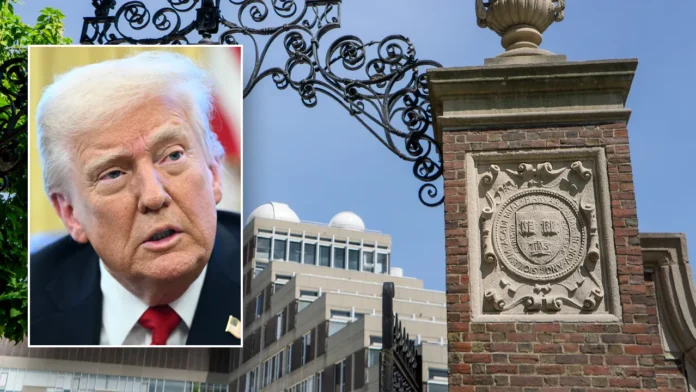The Trump administration on Thursday revoked Harvard University’s certification to enroll international students, effectively ordering thousands of current foreign enrollees to transfer or lose their legal status.
Homeland Security Secretary Kristi Noem announced the termination of Harvard’s Student and Exchange Visitor Program (SEVP) certification, accusing the university of “noncompliance” after it allegedly refused to hand over conduct records of certain international students.
In a letter addressed to Harvard, Noem further accused the university of fostering a “hostile environment” toward Jewish students, promoting “pro-Hamas sympathies,” and pushing “racist DEI policies.” She characterized the decision as a warning to all academic institutions that fail to align with the administration’s vision.
White House: “This Is Consequence, Not Retaliation”
“This is not retaliation — it’s accountability,” said White House spokesperson Abigail Jackson. “Harvard has repeatedly refused to address deep-rooted problems that endanger American students and now must face the consequences.”
Jackson went on to describe the university as a “hot-bed of anti-American, anti-Semitic, pro-terrorist agitators,” rhetoric that echoes recent administration crackdowns on elite universities perceived as resistant to federal directives on campus speech, antisemitism, and diversity policy.
Harvard: “Unlawful and Retaliatory”
Harvard slammed the decision as “unlawful,” vowing to fight back. “This retaliatory action threatens serious harm to our students, faculty and academic mission,” said university spokesperson Jason Newton.
Harvard has nearly 7,000 international students, making up over 27% of its student population. Its global reputation, bolstered in part by its diverse student body, now faces uncertainty.
Jason Furman, a Harvard economist and former Obama administration official, called the move “horrendous on every level,” warning it could damage America’s leadership in global innovation and education.
The Department of Homeland Security has not clarified how much time current international students will have to leave or transfer, nor how it will handle visa and SEVIS record updates.
Legal analysts suggest the university may seek immediate judicial relief, including a temporary injunction. Lawsuits from impacted students or faculty may also follow.
This escalating standoff places Harvard at the center of a broader national debate over academic independence, campus speech, immigration, and federal authority — with ripple effects likely to reach universities nationwide.



















